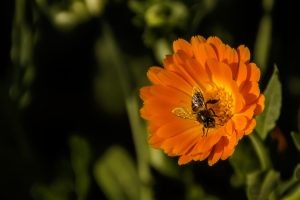get involved
How you can Help
Bees are one of the most important and beneficial insects to humans on Earth. In the U.S., there are approximately 4,000 different types of bee species. In the U.S., the most commonly known bee is the American honey bee. Collectively, beekeepers lose large numbers of colonies/hives annually. There are many factors contributing to colony losses. One clear culprit is the varroa mite, a lethal parasite that is easily spread between colonies. Additionally, pesticides and malnutrition are also taking a toll.
How can you help efforts to combat colony losses? You can:
- Plant bee-friendly plants native to your area.
- When possible, buy only plants or seeds that aren’t pre-treated with pesticides.
- When possible, plant and maintain gardens without the use of pesticides that harm bees – especially, neonicotinoid (or neonic) pesticides.
- Provide bees a water source (free of mosquitoes) on your property.
- Contact a local beekeeping association representative and ask how you can learn more about bees and beekeeping. Also, consider becoming a beekeeper.
inform others
Did you know Bees pollinate:
- Eighty (80) percent of flowering plants on Earth. In fact, a single honey bee colony can pollinate up to 300 million flowers each day.
- Seventy (70) of the top 100 human food crops. One in 3 bites of food in your diet is derived from plants pollinated by bees.
- About 75% of fruits, nuts, and vegetables grown in the U.S. Some plants such as almonds are totally dependent on bee pollination. The California almond industry requires approximately 1.8 million colonies of honey bees in order to adequately pollinate nearly one million acres of almond orchards.
- Crops such as apples, cranberries, melons and broccoli. Contributions made by honey bees hired by U.S. crop growers to pollinate crops amounted to over $19 billion annually. They are essential for the reproduction of twelve widespread crops, such as Brazil nuts and pumpkins.
- About 400 of agricultural plants including clover and alfalfa which are sources of food for cattle. Thus, there are implications for the meat and dairy industry.
In 2007, National Pollinator Week was officially declared by the U.S. Senate unanimously approved and designated a week in June as “National Pollinator Week”. This action marked a necessary step toward addressing the urgent issue of the world-wide declining pollinator populations. National Pollinator Week is an excellent opportunity to celebrate pollinators and spread the word about what we all can do to protect them. Pollinator Week has now grown into an international celebration of the valuable ecosystem services provided by bees, birds, butterflies, bats and beetles.
